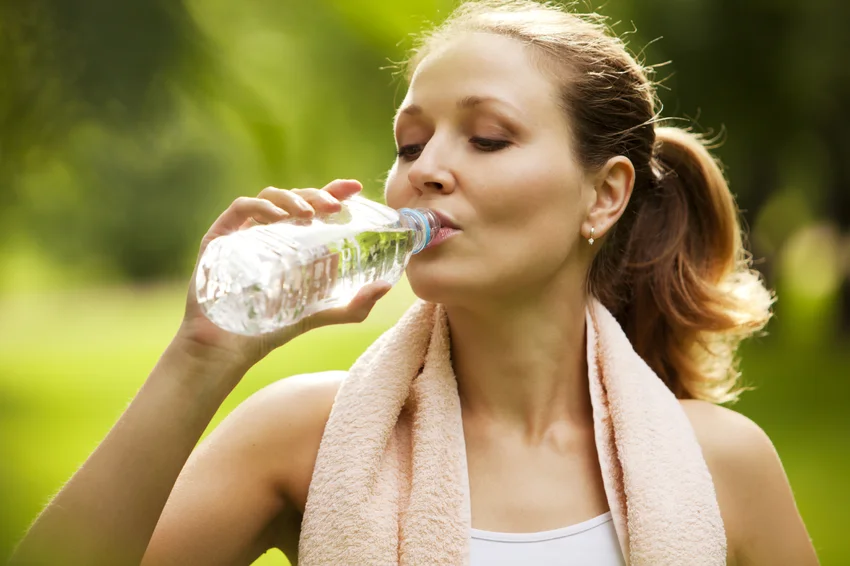Eight glasses per day
Two-thirds of our body is water. The amount, however, is not consistent with many liters being lost every day through vapor when breathing out, through skin pores when perspiring and with the excretion of roughage, urine and faeces, thus, making its replacement necessary. The amount of water needed varies, of course, according to body type and age. Obviously, an infant and an adult will have different needs and the amount will not be the same for a small, thin body type and a big, stout person.
Other circumstances or conditions (pregnancy, nursing, old age, etc.), such as hormonal changes, health condition, body heat and outside temperatures, the air’s humidity, the extent of physical activity and many other factors also affect the need for fluids. It is generally recommended that we drink 30 ml of water for every kilogram of our body weight. That is, a person weighing 80 Kg requires 2.4 liters of fluids per day. Thus, the age old advice of drinking eight glasses of water per day for good health is true.
Warning signs
From time to time, we may all simply forget to drink. A typical daily schedule would be - instead of breakfast, we quickly bold down a cup of coffee, scarf down baked goods, on workdays we eat a quick lunch, seldom including soup, followed by another cup of coffee which, in addition, also happens to be a diuretic. The result is a dull headache, languid and enervated mood, loss of energy, fine wrinkles appear on the skin and dark circles under the eyes, decreased concentration, dry tongue and decreased amount of and possible burning urine. If the person does not become aware of these first warning signs, these may turn into something more serious. Continued lack of fluids may lead to urinary tract complaints, kidney problems, increased pulse rate and the balance of your body fluids gets broken. The lack of fluids, in addition to dehydration, disrupts our body’s ion balance since with perspiration and urine various minerals are also depleted which also need replacing. Sodium, potassium, calcium and magnesium lost during sports, either intense or extended physical activities, will also have to be replaced as soon as possible or dizziness, lowering of blood pressure and muscle cramps may follow.
Take care of your kidneys!
The role of our kidneys is to separate the surplus fluid and the poisonous material from the blood. They are organs of vital importance that are threatened from many directions. The kidneys may be damaged through metabolic disorders such as diabetes, a rise in blood sugar levels, high blood pressure, cardiovascular disorders and among others, the chronic lack of fluids. You can support kidney function by drinking the proper amounts of fluid since ample fluid intake helps the kidneys to clear our system of salts, uric acid and poisonous material thereby reducing the likelihood of developing chronic kidney disorders. Experts consider 2.5 liters of fluid intake to be fundamental in reducing the danger of kidney malfunction. In the case of kidney stones, 2-3 liters are strongly recommended which also helps reduce the likelihood of a new stone from developing. Deteriorating kidney function requires more fluids in the beginning. It is only in the later stages of malfunction – when the kidney can no long separate the proper amount of fluids – that excessive intake may be damaging.
Water, fruit juice, tea and soup
Drinking two and one half liters of fluids per day may seem too much, if we think of water only. Of course, the simplest form of fluid intake and mineral replacement is tap or mineral water. However, if a variety of fluids, such as teas, milk shakes, vegetable and fruit juices and soups would be part of our fluid menu, then that would help ensure that we actually do drink the proper amount. Coffee and alcohol do not appear on this list due to the fact that both caffeine and alcohol have a dehydrating and diuretic effect which would give us exactly the opposite from the desired results.


